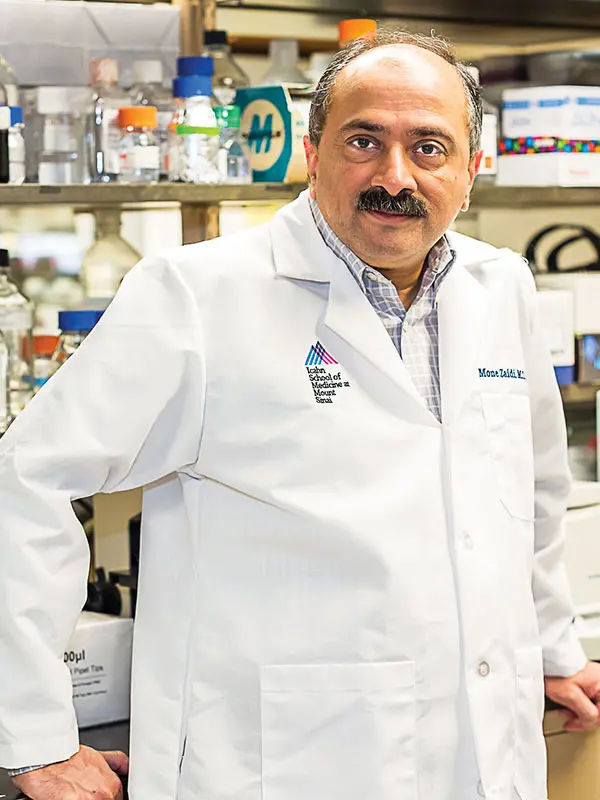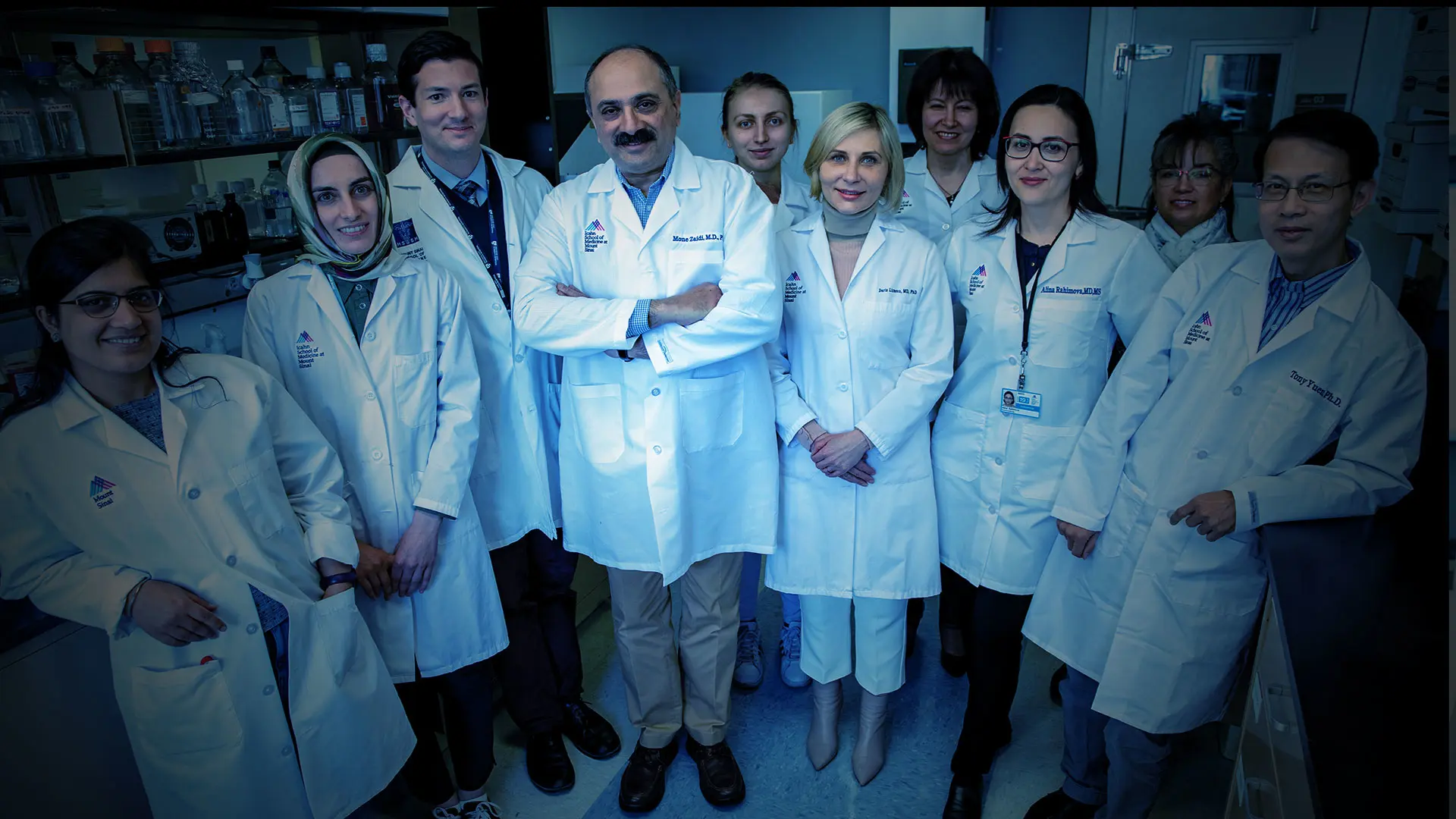Researchers at the Icahn School of Medicine at Mount Sinai have developed a first-in-class humanized antibody to the pituitary hormone—follicle-stimulating hormone (FSH)—which they predict will reduce body fat, increase bone mass, enhance metabolism, and lower cholesterol. The study was published in November 2020 in the Proceedings of the National Academy of Sciences.
“Obesity and osteoporosis affect nearly 650 million and 200 million people worldwide. Yet the resources for preventing and treating these disorders remains limited, particularly when compared with public health epidemics of similar magnitude. This humanized anti-FSH antibody has the potential of preventing and treating not one, but three diseases—obesity, osteoporosis, and hypercholesterolemia,” says lead author Mone Zaidi, MD, PhD, Director of the Mount Sinai Bone Program and Professor of Medicine (Endocrinology, Diabetes and Bone Disease) at the Icahn School of Medicine at Mount Sinai.
The study is part of a multicenter project funded by a $12.5 million grant from the National Institute on Aging seeking to advance the treatment of two public health hazards in older adults—osteoporosis and obesity. The four-part project is focusing on FSH, which rises at menopause and could be responsible for the weight gain and bone loss that many women experience in middle age.
The FSH research builds on a collaboration spanning nearly two decades between Dr. Zaidi and Clifford Rosen, MD, senior scientist at Maine Medical Center Research Institute. The results of their previous work were published in the journal Nature in 2017 and were among the eight “notable advances” in biomedicine named that year by Nature Medicine. Mouse-based data that Drs. Zaidi and Rosen concurrently confirmed in each other’s laboratories showed that blocking FSH reduces obesity and increases energy expenditure in both male and female mice fed on a high-fat diet.
In the 2020 study, Dr. Zaidi’s team reported on the generation, structure, and function of a first-in-class, fully humanized, FSH-blocking antibody. Protein thermal shift, molecular dynamics, and fine mapping of the FSH–FSH receptor interface confirmed that the antibody was blocking FSH signaling. In doing so, the humanized antibody profoundly inhibited FSH action in cell-based assays, a prelude to further preclinical and clinical testing.
“This next stage brings us even closer to an effective therapy aimed at preventing and treating both obesity and osteoporosis,” Dr. Zaidi says.
Question of the Year:
What was the most significant development in your field in 2020?
The most critical development in my field is the revelation that bone is an endocrine organ that responds to multiple hormonal clues, including our favorite hormones from the pituitary. This has led to the unmasking of certain therapeutic targets for osteoporosis.
These studies, using mouse models, have also revealed common targets for other diseases. Some of these overlap, such as FSH, which is a common target for osteoporosis, obesity, high cholesterol, and neurodegeneration—diseases that affect millions of women and men worldwide. With that said, the biggest challenge is to modify those targets to a therapeutic advantage in people.
- Mone Zaidi, MD, PhD
Featured

Mone Zaidi, MD, PhD
Director of the Mount Sinai Bone Program and Professor of Medicine (Endocrinology, Diabetes and Bone Disease)
